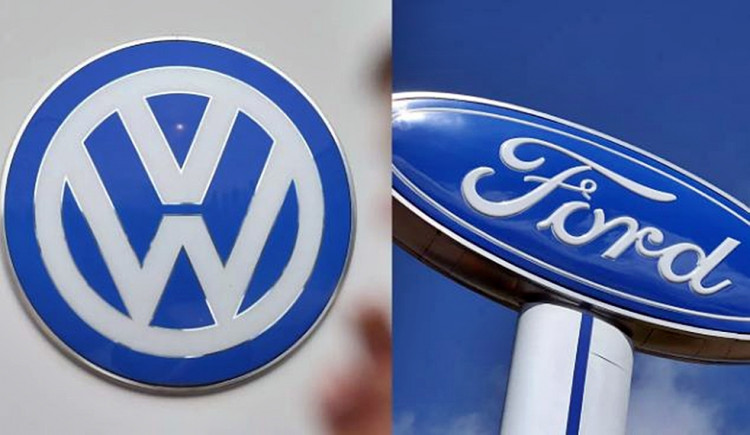After six months of intense speculation, Ford Motor Company and Volkswagen AG finally announced a partnership to develop autonomous and electric vehicles in a joint effort to remain relevant and slash costs.
In addition to joining forces to build self-driving and electric vehicles, VW and Ford will also build new vans and trucks in about four years. They will also explore other mobility solutions such as electric scooters and bikes.
VW is the world's largest vehicle manufacturer while Ford is the fifth-largest.
"Over time, this alliance will help both companies create value and meet the needs of our customers and society," said Ford CEO Jim Hackett. The alliance will not only drive significant efficiencies and help both companies improve their fitness, but also gives VW and Ford the chance to collaborate on shaping the next era of mobility.
Under the deal, both companies will be governed by a joint committee led by Hackett and Volkswagen CEO Herbert Diess. Each firm will remain independent of the other, however.
Hackett said no one company can do all of this alone. He emphasized that all these efforts will be enhanced by sharing brainpower.
He said Volkswagen and Ford will harness their collective resources, innovation capabilities, and complementary market positions to even better serve millions of customers around the world. At the same time, the alliance will be a cornerstone for the drive of both VW and Ford to improve competitiveness.
The companies said their shared goal is to meet the growing demand for medium-size pickups and commercial vans over the next five years. Ford will engineer and build the trucks for both companies starting in 2022. On the other hand, both automakers will build vans for European customers.
Analysts said both firms first looked to a partnership as a way to help Ford into the electric vehicle market. Volkswagen has previously announced plans to develop 27 electric models across its brands, which also include Audi, Skoda, and Seat.
The news about the VW-Ford alliance first broke in June 2018 with the revelation both firms were in talks to build electric and autonomous vehicles. At the time, analysts speculated that the driving force behind the deal was Ford's slow start in the electric vehicles market and a weakening of Ford sales in Europe.
In June 2018, VW and Ford said a development and production alliance was being discussed, and in November, VW CFO Frank Witter almost confirmed the company's interest in teaming up with Ford.





